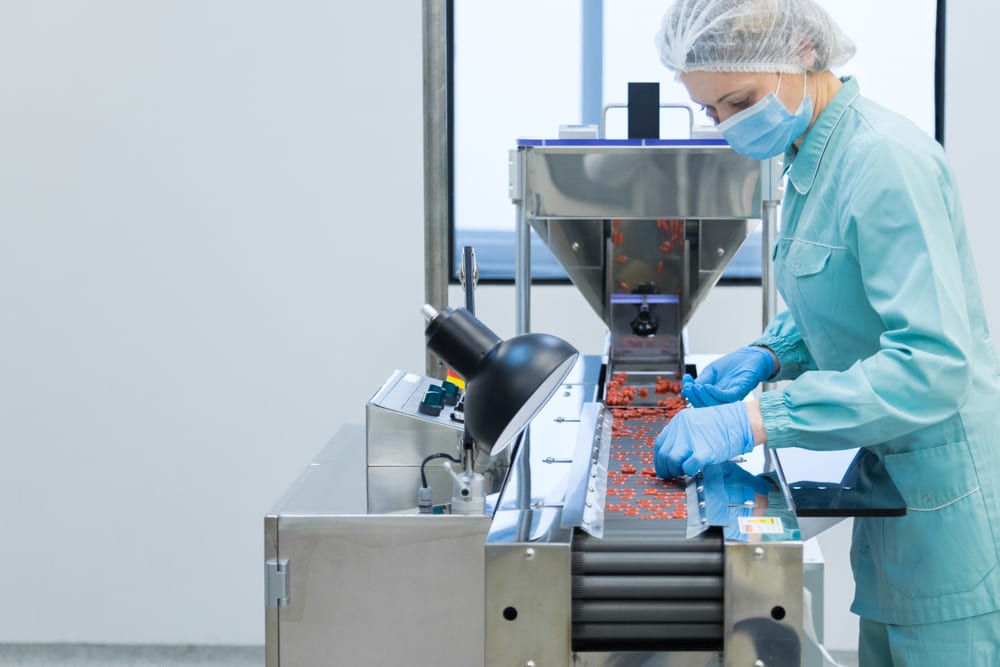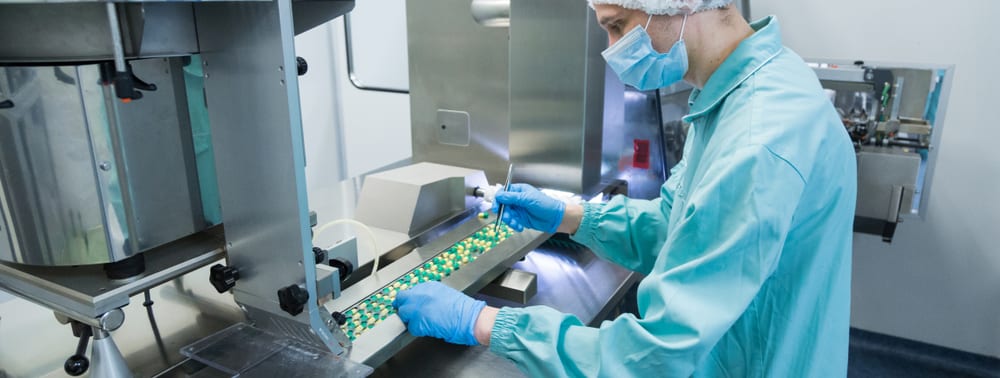
Wondering if your supplements should be pharmaceutical grade? The short answer is yes. But keep reading to find out exactly why.
The US supplement industry made roughly $30 billion last year, and experts predict that number will climb to $32 billion in 2019. With numbers like these, it’s no surprise that more companies are coming into the space with the hopes of getting their share of that revenue. But making a profit in the nutraceutical industry is not as easy as it used to be.
In recent years, the industry has come under scrutiny because of numerous stories about trusted brand name supplements that were found to not meet manufacturing standards or best practices. In 2015, the New York state attorney general’s office accused four national retailers of selling dietary supplements that were fraudulent in their claims. In some cases, the supplements were contaminated with unlisted ingredients.
These revelations caused many consumers and physicians to become leery of supplements. It’s one thing to waste money on a product that will not do what it has promised. It’s another thing to have that same product be harmful to your health.
Pharmaceutical Grade Manufacturing VS cGMPs
You may not realize it, but currently, dietary supplements are not regulated by the Food & Drug Administration (FDA) in the same way that prescription and over-the-counter medications are. Medications are manufactured under much tighter regulations.
The term “pharmaceutical grade” refers to the manufacturing processes used to produce these medications. All medications must go through a rigorous approval process before they ever get to market. The FDA also makes sure that every new drug is put through a series of clinical trials to test its safety and efficacy. Only when the drug meets the FDA’s standards of approval is it made available to the public.
But pharmaceutical-grade manufacturing goes beyond just meeting the FDA’s approval. A drug company must also possess a unique monograph. This is similar to how a food manufacturer might have a unique industrial recipe. A monograph describes the exact, step-by-step procedure for making the drug, including exact specifications for sourcing raw materials. This ensures that the safety and efficacy of the drug is consistently maintained.
cGMPs Don’t Stack Up
The supplement industry is currently not held to the same standards as the pharmaceutical industry when it comes to its manufacturing processes. Instead, dietary supplements and other nutraceuticals are subject to their own unique set of cGMPs (current good manufacturing practices) that have been established by the FDA.
While the FDA has actively enforced these cGMPs and cracked down on those who have been found in non-compliance, this usually occurred after supplements had hit the market and a complaint was lodged against the company.
This has been the system in place for supplement manufacturing since the 1990s. But in a recent statement, FDA commissioner Scott Gottlieb, M.D., announced that the organization wants to consider imposing tighter regulations.
“We are announcing a new plan for policy advancements with the goal of implementing one of the most significant modernizations of dietary supplement regulation and oversight in more than 25 years,” he said. “We know that most players in this industry act responsibly. But there are opportunities for bad actors to exploit the halo created by quality work of legitimate manufacturers to instead distribute and sell dangerous products that put consumers at risk.”
What will these new regulations require from supplement manufacturers? No one is certain. But it’s safe to say that from here on, supplement companies would be wise to follow pharmaceutical-grade manufacturing procedures.

Benefits of Pharmaceutical Grade Manufacturing for Supplements
Besides the obvious benefit of being recognized as trustworthy and responsible by the FDA, there are some other benefits to implementing pharmaceutical-grade manufacturing processes in your own company. These have to do with your company’s perception among doctors and consumers, and perception is key when you want to be #1.
More Bioavailable
In order for a supplement to be effective, it must first be absorbed by the body. Consumers know this and are actively looking for supplements that have proven they are very bioavailable.
Supplement manufacturers that adhere to pharmaceutical grade manufacturing processes create products that are far more bioavailable than many of their competitors. This is because the FDA requires that medications must be absorbed into your body at a maximum of 45 minutes.
Pure
For a supplement to be pharmaceutical grade, the raw ingredients must be tested prior to production. This testing process is what finds and removes any contaminants that may be present in the sourced ingredients.
Pharmaceutical grade supplements may also not contain any binders, fillers, dyes, excipients or other unknown substances. This is one of the biggest concerns of consumers of supplements. They do not want to think they are taking something that supports their health, only to find the supplement contains something that is harming them.
By following strict pharmaceutical-grade manufacturing procedures in your company, you ensure your product is 99% pure without additives or unnecessary substances which may cause unwanted side effects for your customers.
Exact Dosage
Pharmaceutical Grade supplements require that the dosage in each individual supplement is identical to what the label says is in the product. Many current supplements on the market that don’t follow these strict guidelines are offering approximate dosages.

Final Takeaway
Today’s consumers are savvy, and they don’t part with their money easily. Most will research numerous supplement companies, or get a recommendation from their doctor, before making a purchasing decision.
To be a trusted name in today’s marketplace, supplement brands must partner with a reputable manufacturer that follows the strictest pharmaceutical-grade manufacturing processes. This ensures your supplements are bioavailable, pure, and dosed accurately.
At SMP Nutra, we take nutraceutical manufacturing very seriously and provide a pharmaceutical-grade product you can market confidently. Our team can tackle your health product, supplement, or vitamin. From softgels to gummy vitamins, we will take care of developing, manufacturing and getting your product ready to be shipped and put on shelves.
We also provide superior customer service and are more than happy to answer any questions you may have.

